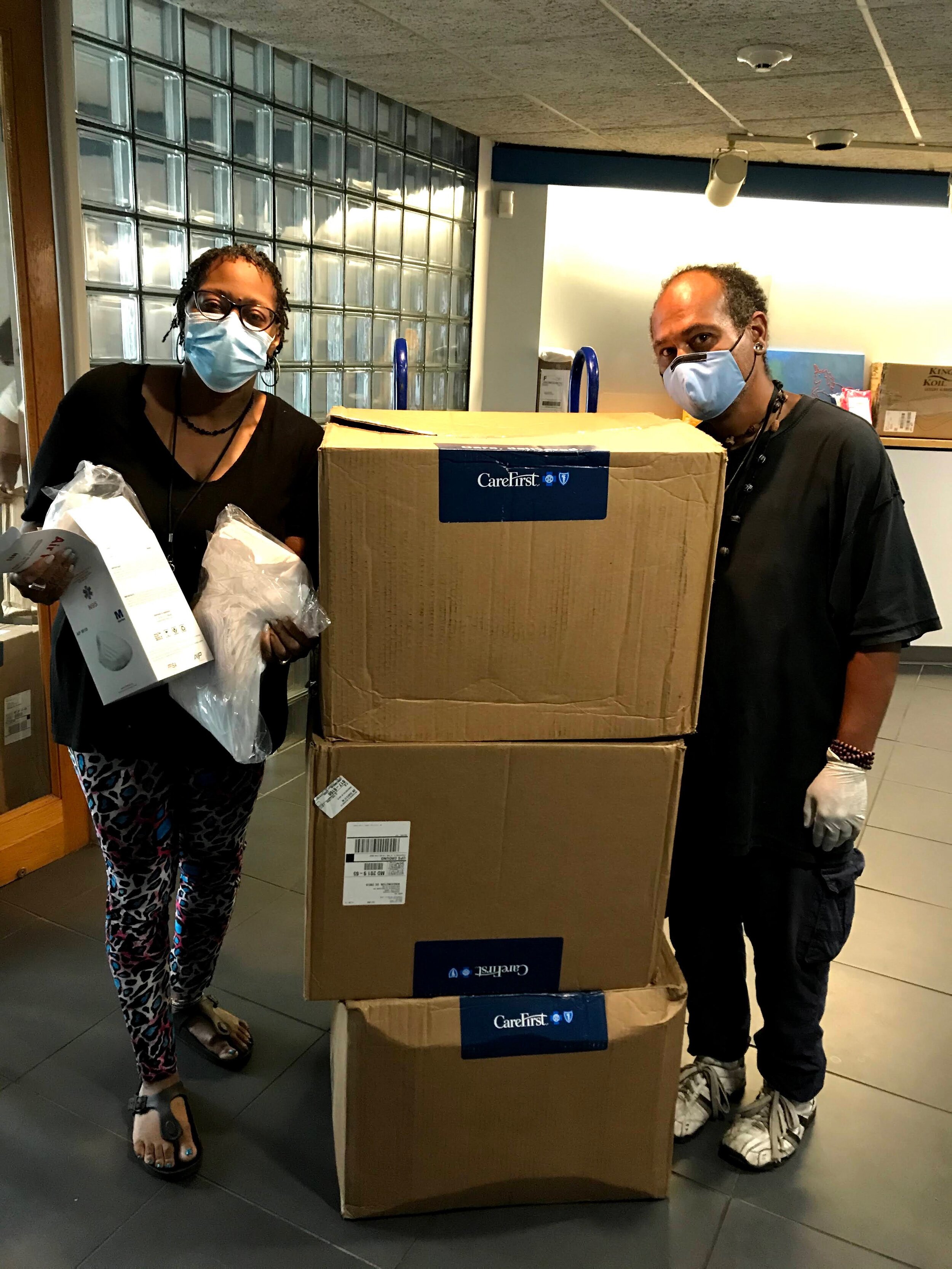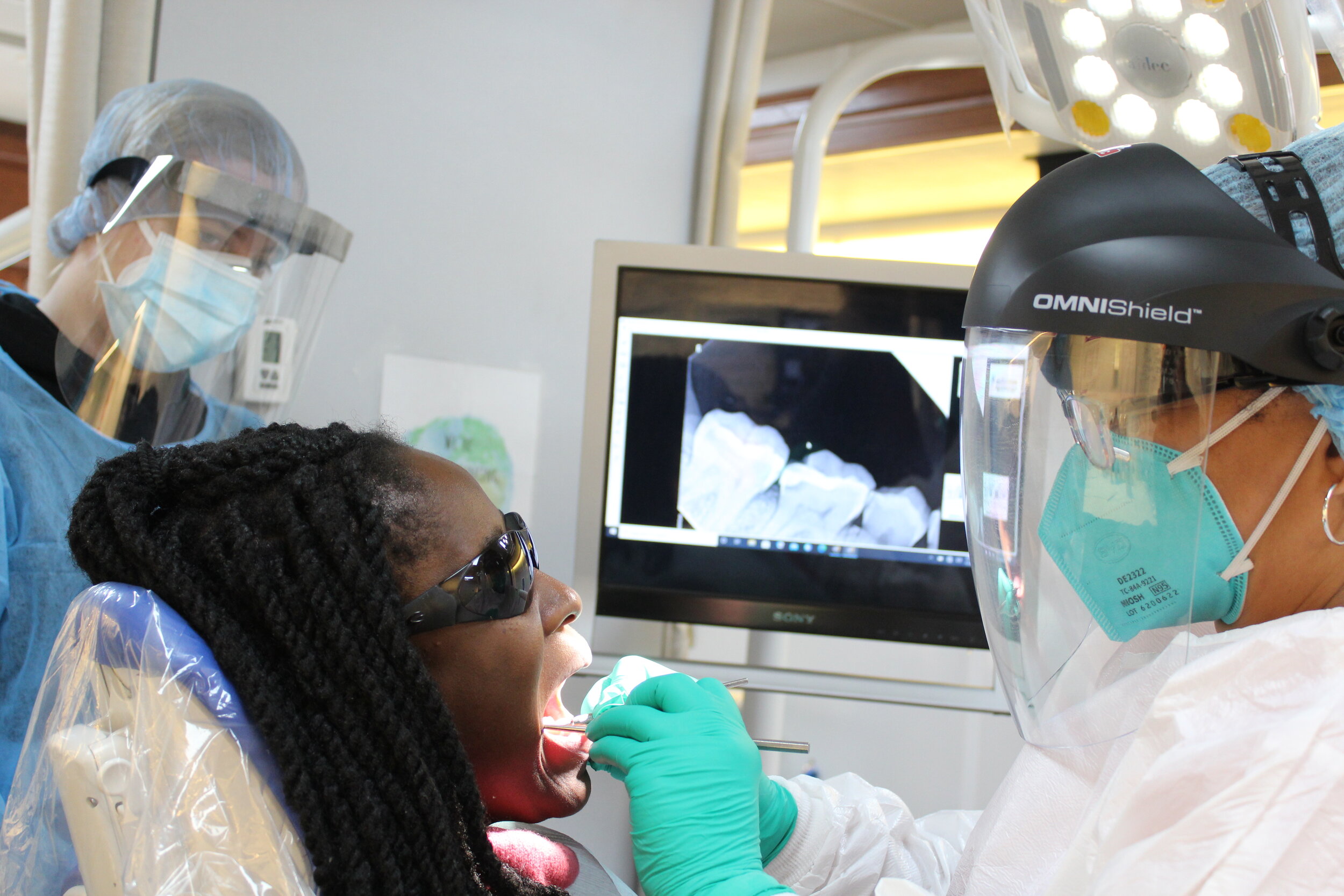By Rebecca Rothey, Vice President of Development and Senior Philanthropic Advisor
Rebecca Rothey
At this time of year, I am particularly grateful for my job. Philanthropy is my passion, and helping others discover opportunities to be philanthropic is a great joy. The Greater Washington Community Foundation provides the perfect context for this work, thanks to the collective knowledge of our donors, volunteers, and staff. That is knowledge not only of effective giving practices, but also of the issues affecting our region.
This year, the killing of George Floyd, among far too many other Black men and women, led to widespread civil unrest and calls for racial and social justice as urgent issues for our community and our nation to take action on. Many community members—especially our Black and brown neighbors—were struggling before this pandemic and now find themselves standing in line for boxes of food or eking out their savings to make the rent or mortgage payment. On top of that, nonprofit organizations across the region, many of whom endeavor to help our lowest-income neighbors, are facing sudden losses of expected revenue, and increased but unfunded operational costs. Many have already folded.
The Community Foundation has closely tracked regional needs throughout this year of turmoil and served as our region’s philanthropic first responder. Since the start of this crisis, our COVID-19 Emergency Response Fund has addressed the public health and economic needs of our communities, with a particular focus on those disproportionately affected—typically low-income households and communities of color.
Thanks to the generosity of hundreds of individuals, as well as corporate and foundation donors, we have been able to distribute over $10 million to meet the extraordinary needs of our community. And, with 50% of COVID-19 nonprofit partners led by people of color, we’ve continued to prioritize racial equity in our grantmaking.
And the work is not over yet.
Each year, particularly during this season, donors turn to The Community Foundation to help them identify where their philanthropy will have the greatest impact. In a year like 2020, this can be particularly crucial. We stand ready to listen to your particular interests and concerns—whether those be in environmental justice, human services, or elsewhere—and offer guidance or support.
Rufus Lusk, III and Jessica Damen
Let me tell you about a couple who are very clear about their priorities and have partnered with The Community Foundation for over 15 years to maximize their impact. Social justice is at the core of Rufus Lusk, III. and Jessica Damen’s giving. “Everything has a social justice component to it. There’s not a single charity we contribute to that doesn’t have this factor,” said Rufus.
Through their donor-advised fund at The Community Foundation, Rufus and Jessica support a wide range of social justice-focused organizations, including The Sierra Club, American Friends Service Committee, Doctors Without Borders, Southern Poverty Law Center, and many others.
They are committed to advancing equity—especially at the local level, in the Prince George’s County community. The couple credits The Community Foundation with connecting them to local organizations that are committed to social and racial justice, and advising them about giving opportunities like the Legacy Fund, established by The Community Foundation to provide relief to small Prince George’s County businesses suffering as a result of COVID-19.
“Giving to small businesses—especially minority-owned—is absolutely crucial,” said Jessica. “They’re the backbone of our economy.” Rufus agreed, and added, “To develop greater social equity, you need strong organizations. And you need local strong organizations. That’s what The Community Foundation is all about.”
I started this blog post by saying that philanthropy is my passion. I’m dedicated to working with donors to invest in organizations fostering real change in our society—and helping people discover their passions along the way. I’d be delighted to partner with you in this process and help to further develop your giving priorities.
One easy place to start is this Washington Post piece, featuring giving tips from our Montgomery County office Executive Director Anna Hargrave. Some other resources I recommend include:
Bethesda Magazine’s annual Guide To Giving, to which we contribute, with a vetted list of nonprofit partners in Montgomery County addressing a range of issues.
The Catalogue for Philanthropy: Greater Washington, which we mail to all of our donors in November. This year, it features 80+ nonprofit partners focused on COVID-19 response work.
Our own list of more than 200 nonprofits selected over the past six months to receive grants from our COVID-19 Emergency Response Fund—all worthy of consideration for additional gifts.
Become a Community Champion with a contribution to the Fund for Greater Washington, and help us provide vital resources to civic and community organizations, incubate new ideas, and remain flexible and vigilant in leading the response to today’s needs and tomorrow’s challenges.
“We’re all in this together” is a familiar refrain in this pandemic. But it could be the motto of The Community Foundation in any year. We’re glad to have you with us.






















